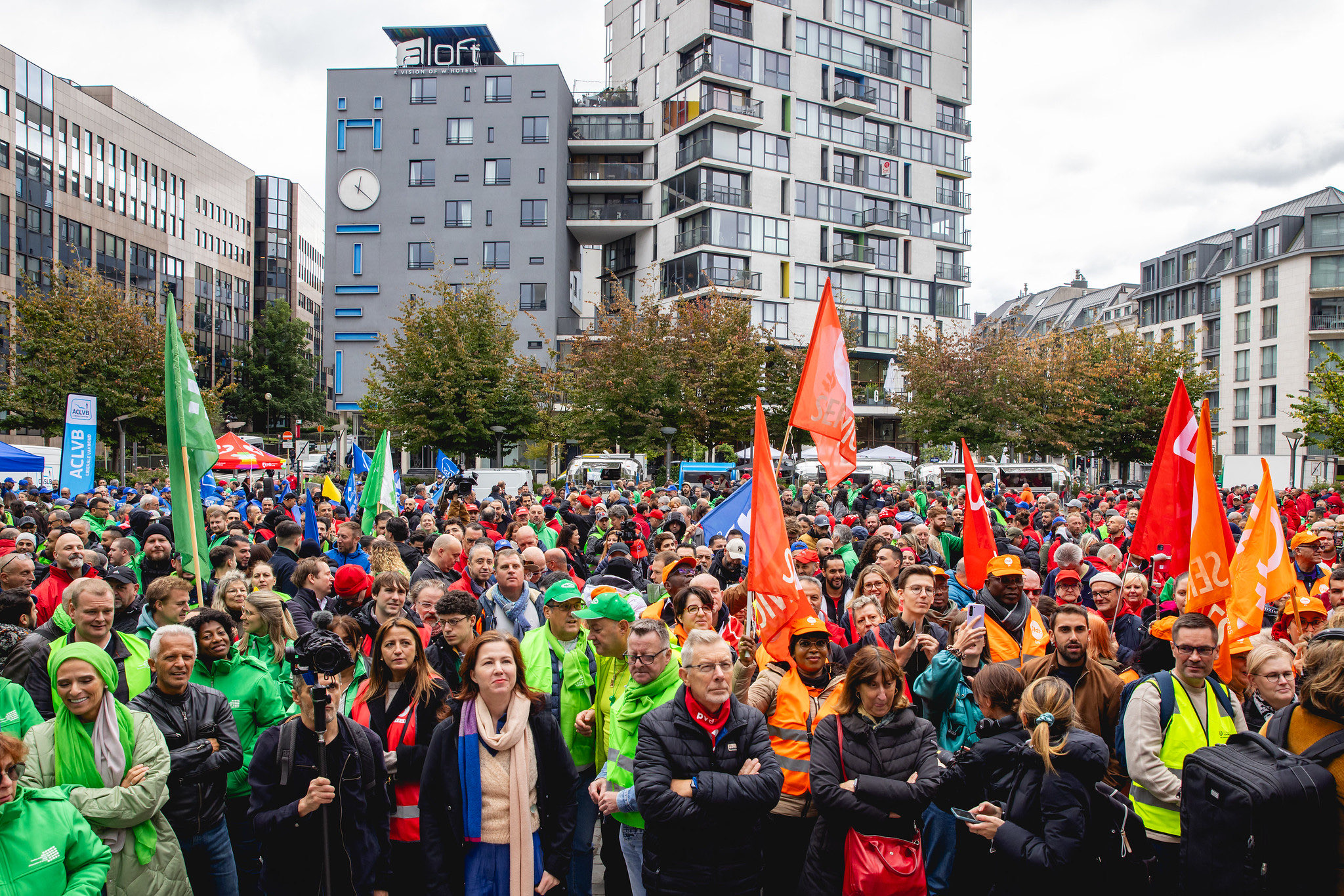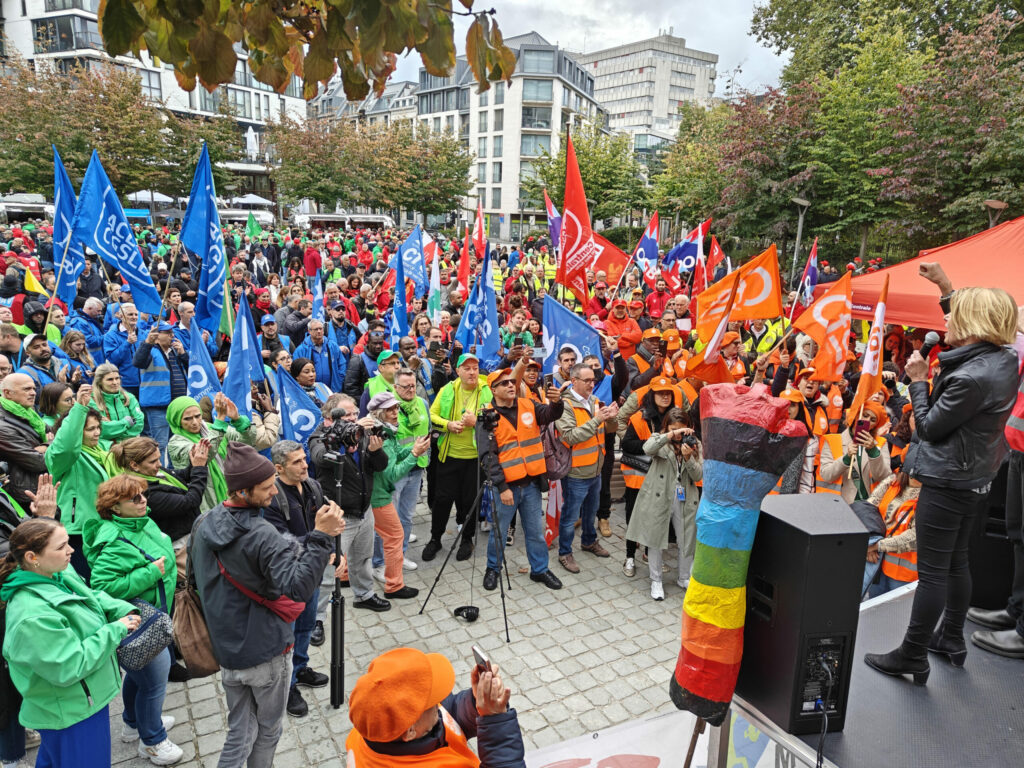Some 1,000 essential workers from nine European countries rallied in Brussels, demanding that European Commission President Ursula von der Leyen act to improve pay and conditions for millions of workers through procurement reform.
Cleaners, security guards and food service employees, trade union leaders and members of the European Parliament condemned the "race to the bottom" caused by the EU’s current procurement rules, which prioritise the lowest price at the expense of workers' well-being.
"My job is very important for the safety of the people. But my salary is far too low for the cost of living," security worker Youssef B said. "What I want is to be able to offer the best service to my customers and have a decent life for myself and my family. So the rules at the European level need to change, so that my colleagues and I can finally get good working conditions."
Commission President Ursula von der Leyen has pledged a revision of the EU Public Procurement Directive in the Commission’s new mandate – a mission entrusted to Executive Vice-President for Prosperity and Industrial Strategy Stéphane Séjourné.
Truly essential
"We know from essential workers about the pervasive low wages and social precarity created by the EU's current procurement rules. These problems are the same everywhere across Europe. They are caused by bad EU regulation and therefore need an EU-wide solution," said Oliver Roethig, Regional Secretary of trade union federation UNI Europa.
"We must reform public procurement rules now. Europe deserves better than a race for the cheapest price. Workers need wages with dignity, safe and secure jobs," he added. They are calling on von der Leyen to turn her promise of quality jobs, fair wages and good conditions into reality.
For Kim van Sparrentak, MEP and Member of the Committee on the Internal Market and Consumer Protection (Greens), the Covid-19 pandemic showed that cleaners, construction workers and security agents are the "truly essential workers" in society.
"They too often are not getting what they deserve. This 'Stop the Race to the Bottom' demonstration is a strong call to action not to miss the opportunity of the announced revision of the EU rulebook on procurement," she said.

Credit: Marc Botenga / X
The rally comes one day after an open letter from over 100 leading economists around the world (including Thomas Piketty and Isabella Weber) calling for "a reform of the EU public procurement rules that strengthens collective bargaining and improves working conditions in labour-intensive sectors such as cleaning, security and food services."
The economists argued that "current procurement practices – with their dominant focus on the lowest price in tenders – create market conditions that allow bidders to disregard social criteria," marginalising other critical factors, such as labour rights and fair working conditions.
"Over the course of my 20-year career in the European Parliament, I have worked for 11 different bosses, changing employer every four years," said Najib M., a contract catering worker in the European Parliament. "Today, I am taking to the streets because my future is uncertain. We need stability and fairness, not a constant race to the bottom."
Competitiveness is not a euphemism
UNI Europa research shows that half of all public tenders across the EU are awarded solely based on the lowest price, often due to procurement rules. Li Andersson, MEP and chair of the Committee on Employment and Social Affairs (The Left) said that "competitiveness cannot turn into a euphemism for low wages and unfair working conditions."
These rules overlook the social costs to communities and undermine von der Leyen's promise of quality jobs, quality services and increasing collective bargaining coverage to "support fair wages, good working conditions, training and fair job transitions for workers."
Enrico Somaglia, the Depuy Secretary General of the European Federation of Trade Unions in the Food, Agriculture and Tourism (EFFAT) called it "outrageous" that public contracts funded by taxpayers continue to be awarded based solely on the lowest price "in this day and age".

